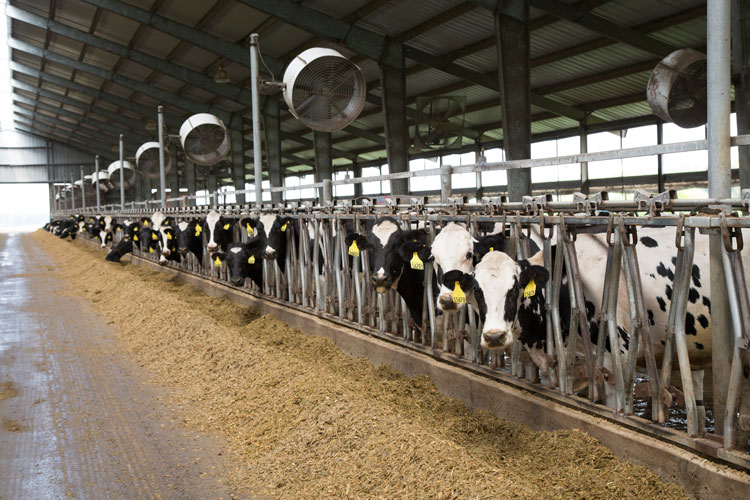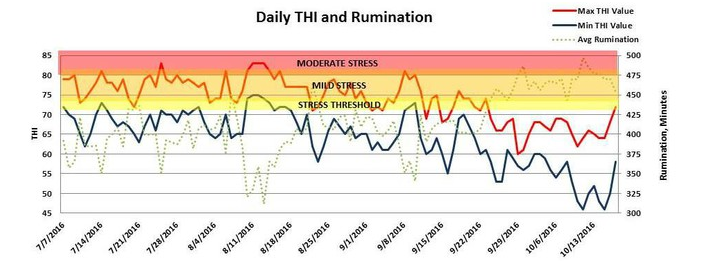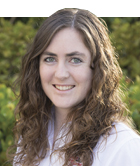
Penn State’s Mathew Haan recently described an on-farm study completed in the Northeast that exhibited just how detrimental heat stress is to metabolic function.
The on-farm case study was conducted in a tunnel-ventilated 104-cow tie stall barn in Pennsylvania. The team monitored both temperature humidity index (THI) in the barn as well as rumination of the farm’s animals throughout the day. Tracked from July 7 to October 15, 2016, the cows experienced a maximum daily THI that ranged from 60 to 85 and a minimum THI that ranged from 46 to 75.
The analysis showed, as expected, that metabolic function suffered during periods with high THI values. The correlation can be easily seen in the model pictured below. When THI was high, rumination took a significant hit. The slow down of rumination that is indicative of lower dry matter intake and less metabolic function carries through to lower milk production.

Daily THI is tightly correlated with low rumination. Source: Penn State Dairy Team
The analysis showed that for every additional one-point of maximum daily THI above 60, cows spent six minutes less ruminating and produced 0.6 pounds less milk.
In this data analysis, the difference in time that a cow spent ruminating at a 60 THI versus a THI of 85 was an impressive three hours. Think of the implications that has on milk production, reproduction, and overall health.
Think heat stress has a small impact on your farm? Think again.







